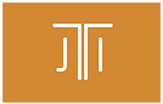True collaboration feels fantastic. It’s a thrill to be part of a group of people working effectively towards the same goals—and at the same time having fun along the way. It’s where there is a high degree of openness, trust and flexibility in collaboration, where everyone’s knowledge and experience comes into play, and where people are listened to with awareness and sensitivity.
The good news is, everyone can learn how to do it, and Radical Collaboration is an effective method for installing trust in collaborations.


